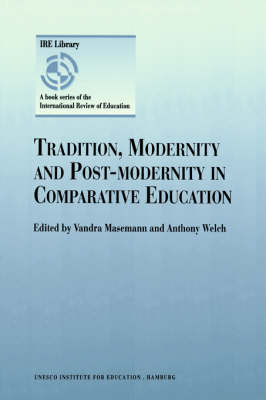This special double issue consists of a selection of papers presented at the Ninth World Congress of Comparative Education, held at the University of Sydney, Australia, in July 1996, on the theme of "Tradition, Modernity and Post-modernity in Comparative Education". Before presenting the selection, this introduction will first survey the changing discourse in comparative edu cation over the past few decades and will argue that an unreformulated and uncritical postmodernity holds no greater promise in comparative education, than its uncritical modernist or tradition-oriented rivals. When Nicholas Hans (1949) cited Michael Sadler's early rationale for studying comparative education, it was within the context of a work which sought to identify the traditions that underlay national educational systems. This early work, together with others such as that by Isaac Kandel (1930) was predicated on the assumption of the importance of national character, of which education systems were an important component. Indeed from this perspective, the purpose of comparative education was not merely to analyse the "forces and factors" which produced differences among educational systems, but, implicitly at least, also "to discover the underlying principles which govern the development of all national systems of education" (Hans 1949: 5). Hans was preeminently an historian, of course (as was Kandel to an extent), and therefore saw comparative education first and foremost in this light.
- ISBN13 9780792349594
- Publish Date 31 January 1998
- Publish Status Active
- Publish Country NL
- Imprint Springer
- Edition Reprinted from INTERNATIONAL REVIEW OF EDUCATION, 43:5-6, 1998
- Format Paperback
- Pages 260
- Language English
